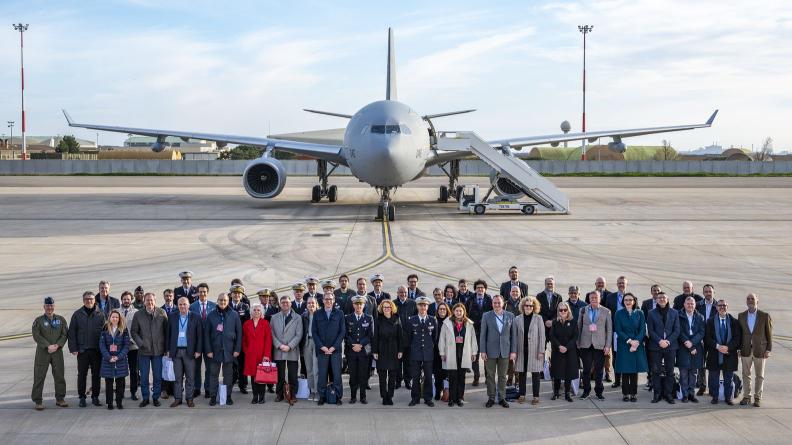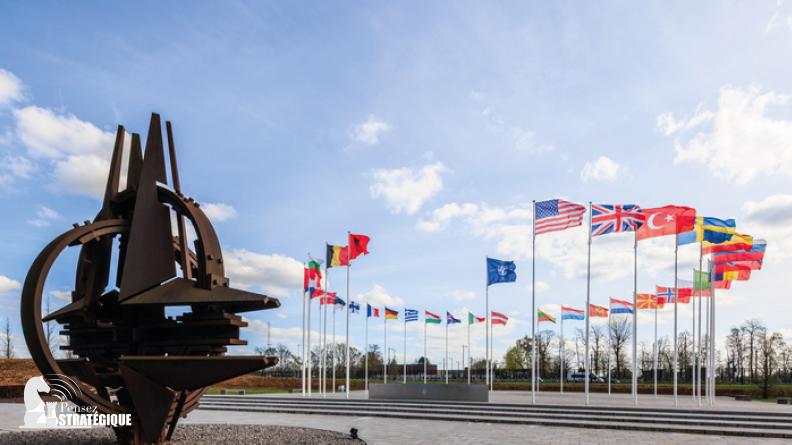[SPDMM 2023] What commitments for the Member States ?
The 8th Regional South Pacific Defence Ministers’ Summit, chaired by Sébastien Lecornu, ended with the signature of a Statement of Intent. The seven Member States have committed themselves to reinforce their co-operation and their co-ordination around four major stakes. Explanations.
The South Pacific is the area of the world most strongly exposed to the effects of climate change. Natural disasters are increasingly violent and frequent there. The humanitarian management of extreme climate phenomena now most often requires to resort to the armed forces deployment capabilities to help populations in distress. SPDMM 2023 thus gave the opportunity to see how far the South Pacific States could increase and enhance the co-operation of their armed forces to face those types of situations. To do that, the Member States have approved the HADR (humanitarian assistance and disaster relief) interoperability guide. This document was developed during the 2023 edition of regional Exercise LONGREACH, organised to train the interoperability capabilities of the regional armed forces in case of natural disaster. Known as Defence HADR SOPs, the text will now serve as a basis for the planning of, and participation in exercises.
Besides, reinforcing interoperability between the armed forces of the region requires a better sharing of information between partners. The Defence Ministers of the Member States have agreed about that on the need to finalise an exchange protocol before the SPDMM 2024 edition.
The 2023 edition of SPDMM also gave the Member States the opportunity to support the Australian initiative to create an intervention group in the Pacific. The Pacific Response Group will be aimed at identifying a group made up of forces of each Member State in order to intervene within 48 hours in case of natural disaster.
The fight against over-fishing in the South Pacific
In the South Pacific, more than half the species of fish are fished in non-sustainable quantities. SPDMM enabled the French Armed Forces Minister, Sébastien Lecornu, to recall the importance to give a suitable answer to the scope of the threat: “the question of illegal fishing has become a security issue since the level of intensity of this illegal fishing now requires a response which could be considered as military, or at least hardened, since the level of concern we have reached is very high”. If illegal, undeclared and unregulated fishing is quite well under control in the French exclusive economic areas of the South Pacific owing to the surveillance and control actions conducted by the armed forces in New Caledonia (FANC) and in French Polynesia (FAPF), there is a strong pressure in high seas and around the insular States. SPDMM has thus given the Member States the opportunity to decide the reinforcement of the shipriding operations to meet everyone’s needs. Shipriding consists in patrolling the territorial waters and exclusive economic areas of a third country, embarking one officer from the said country, to facilitate the triggering of legal procedures. France offers 160 days at sea in 2024 for its neighbours.
Reinforcing training in the field of defence and security
The Member States have committed themselves to better co-ordinate their offers and needs in the training domain, to develop the skills necessary to take up the current security stakes. Two main initiatives have been presented during the summit. Following a Chilean initiative, the members have committed themselves to creating a SPDMM academic network to create links between defence universities and to thus enhance the sharing of security analyses. France, for its part, has presented its Academy of the Pacific project. Announced by Emmanuel Macron, its aim is to structure the training offer in the region to tackle the maritime security and cyber threats. By the year 2027, the French armed forces will train 240 trainees per year.
Reinforcing the resilience of the States against climate change
In the South Pacific, the elevation of the sea level is four times higher than the world average. In that respect, the Member States have approved the road map presented by France to render operational the 2019 SPDMM study on the impact of climate change on defence and security infrastructure. This document presents a list of recommendations regarding the security impact of climate change in the South Pacific by the year 2030. The Member States have thus agreed to implement a working group to reinforce their common resilience against climate change.
After this 2023 edition of SPDMM which took place for the first time in France – in Nouméa – the South Pacific Defence Ministers will meet in New Zealand in 2024.
[SPDMM 2023] The closing press conference
[SPDMM 2023] South Pacific Defence Ministers’ Meeting
Countries represented, security issues and forces present: discover our file from the 2023 edition marking the 10th anniversary of this summit.
Read the articlesFeatured
Ukraine: E5 defence ministers reassert their support
As the conflict in Ukraine continues, the defence ministers of the E5 group (France, Germany, Poland, Italy...
March 14, 2025

NATO Ambassadors Visit Istres Air Force Base
On 6 March 2025, the ambassadors from the NATO (North Atlantic Treaty Organisation) Allies visited the Istr...
March 10, 2025

[Podcast] 75 Years of NATO: The Transatlantic Relationship Standing the Test of Time [2/2]
The war in Ukraine has refocused the North Atlantic Treaty Organisation (NATO) on its primary mission: the ...
July 11, 2024
